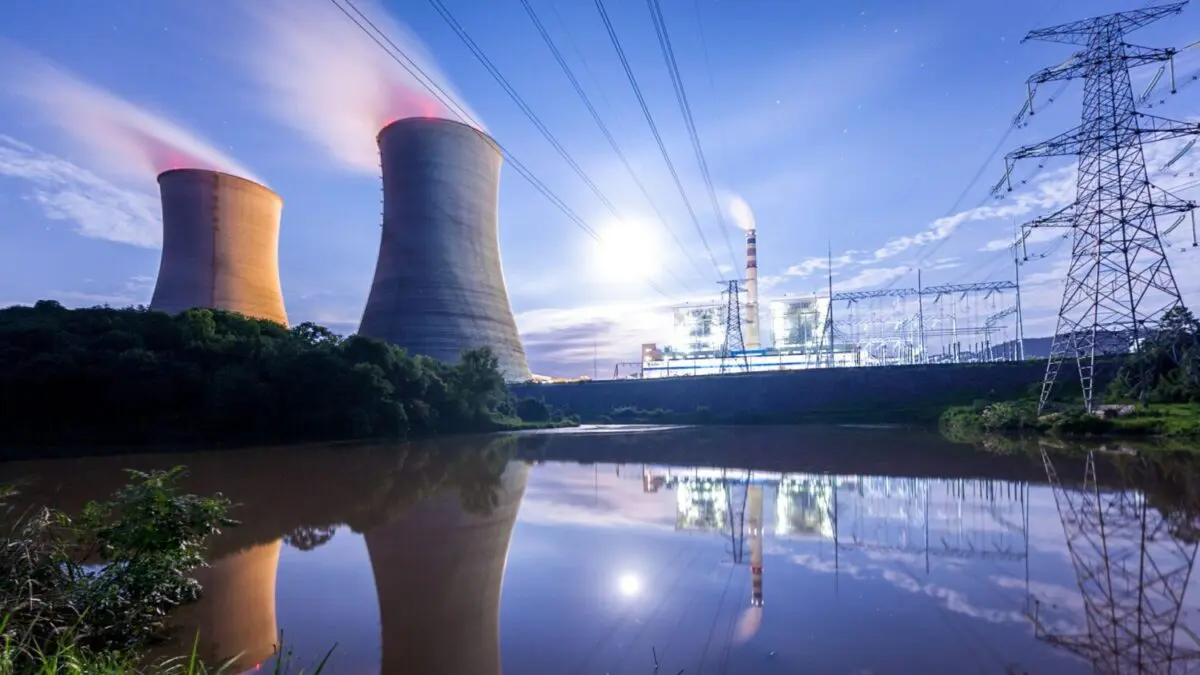The topic divides experts, politicians and governments
Can greenhouse gas, which does not emit greenhouse gases, save the climate or at least save us some time while we wait for the development of new energies? The issue continues to cause divisions both among professionals and among countries.
“Anything that reduces emissions is good. I approve of all clean sources of electricity,” Fatih Birol, executive director of the International Energy Agency, told AFP about the role of the atom as a renewable energy source.
One of the great advantages of nuclear energy, which produces about ten percent of the world’s electricity, is that it has no direct emissions of carbon dioxide.
Even when analyzing its entire life cycle, taking into account emissions from uranium mining and concrete from power plants, it emits very little greenhouse gases: much less than coal, natural gas and even solar energy. . .
This is why nuclear energy has become more important in most plans to limit global warming to 1.5 degrees Celsius than at the end of the 19th century, developed by the Intergovernmental Panel on Climate Change, a group of UN experts.
Given that the world will need more electricity to find a substitute for fossil fuels, including in the power supply of motor vehicles, it seems that the role of nuclear energy will be significant.
For the first time since the Fukushima nuclear disaster in 2011, the International Atomic Energy Agency (IAEA) announced that it expects an increase in the number of nuclear power plants and announced a forecast that in the most favorable scenario their number will double by 2050. г.
China has the most new reactors. “Many countries plan to start using nuclear energy to secure a reliable and clean source of energy,” the Vienna-based agency said.
Its CEO, Rafael Mariano Grossi, sees this trend as an awareness of the fact that nuclear energy is “key” to achieving carbon neutrality by the middle of the century, which will be the focus of next month’s major COP26 climate conference.
“Preferences”
At the same time, scientists from the Intergovernmental Panel on Climate Change point to the fact that “the future use of nuclear energy may encounter constraints related to public preferences.”
Nuclear energy is notorious in some countries due to the risks of accidents and the long-unresolved issue of nuclear waste.
There is a division in the European Union on the issue: Germany, for example, after the Fukushima accident, has decided to phase out nuclear energy. However, Eastern European countries such as Poland and the Czech Republic see it as a way to overcome coal dependence.
Public opinion varies from country to country. “In the Czech Republic, nuclear energy is perceived as a reliable source of electricity at a relatively good price,” said Vadim Strelkovski, an energy expert at the Prague Business School.
The division on the issue became part of the debate in Brussels on whether or not to include nuclear energy in the green “taxonomy”, the classification of activities identified as good for climate and the environment.
Opponents of nuclear energy, who are often the successors of the pacifists, like Greenpeace, have abandoned their traditional arguments to focus on calculating its effectiveness.
Renewable energy costs have not stopped falling, and large nuclear projects have become lengthy and expensive, sometimes costly, as has been the case with Flamanville’s plant in France.
“New nuclear projects are much more expensive and slower than those with renewables,” said Michael Schneider, author of an annual critical report on nuclear energy.
“Spending money today on new nuclear projects is exacerbating the climate crisis by not investing in what is cheaper, faster and therefore more efficient,” he said.
However, the nuclear industry believes it has not said its last word. For several years now, it has relied heavily on small modular reactors: they are simpler, mass-produced and less likely to deviate than large reactors.
“The future of nuclear energy, both in the Czech Republic and around the world, could be small reactors,” said Vadim Strelkovski. Despite interest from several countries, so far only Russia has used this technology at its floating power plant.







